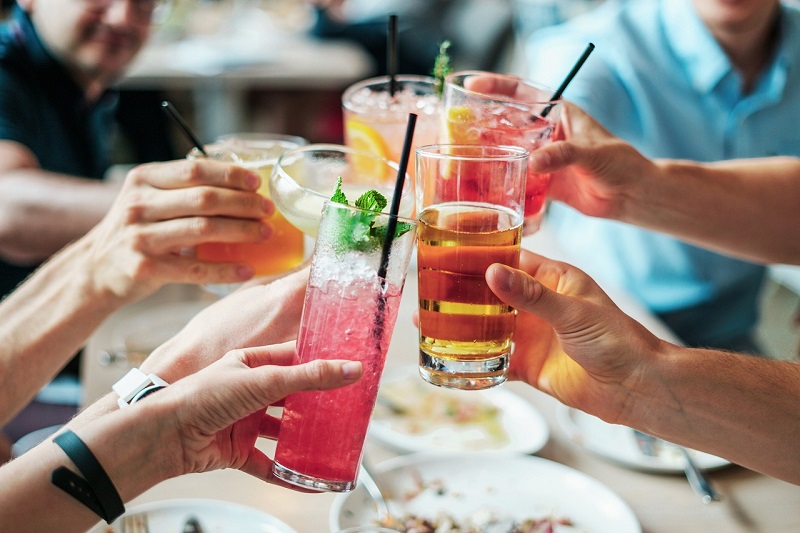
Beer Store: Why People Believe Beer Is Good For Your Health
Luckily for beer sweethearts and beer store all over, the fundamental equation for beer has continued as before for quite a long time: beer is the aged, alcoholic result of the cautious blend of water, malt, jumps, and yeast. That is it. Approve, so bounces weren’t generally incorporated in with the general mish-mash, however, we’ll get to that later. Obviously, this being the cutting-edge beer industry, there’s likewise a possibility somebody got somewhat motivated and blended apricots into it, or perhaps the beer was “bounced” for an additional drawn-out stretch of time—bringing about an all the more decisively sharp flavor. Be that as it may, the essential spine of your beer, from Coors to create, remains delectably the same.
What’s more, that is on the grounds that you don’t disturb the straightforwardness of a decent formula. Looking somewhat more nearly, we discover that beer, as raised bread, is the result of starch-based yeast maturation. Grains, frequently super-boring grain, are permitted to incompletely grow and are then joined with water, making a sort of oat squash into which brewers release a little, single-celled armed force of Saccharomyces cerevisiae or brewer’s yeast. Presently, yeast cherish sugar pretty much as much as a child in a sweet store, with the exception of when yeast eat sugar, rather than having a fit of rage and sticky fingers, they make supernatural results: ethanol and CO2, which can appear in different levels in some of our top choice, and minimum top choice, beers. Hops, the cone-formed bloom of a tall climbing plant identified with Cannabis, are included the preparing procedure both as a method for illumination and adjustment, and to grant their mark flavors—which run from severe and astringent to flower, fruity, and citrusy.
Once more, varieties (of the grains or jumps or even the yeast strains utilized) flourish, and simply like wine, beer can here and there expect a portion of the surrounding terroir of its condition (indigenous yeast strains, water content, nearby organic product or bounce flavors, and so on.). Be that as it may, wherever water, malt, yeast, and bounces meet up such that maturation happens, the outcome—which you may appreciate out of a jug or can or
1. A diminished occurrence of coronary illness
One investigation, directed by the National Institute on Alcohol Abuse and Alcoholism (NIAAA) noticed a 20 to 40 percent diminish in coronary course ailment in direct liquor consumers. Presently, that doesn’t mean drinking more is better.
Drinking beer mindfully is drinking solid. Direct utilization of beer (liquor) brings about an expansion in HDL (great cholesterol) and a lessening in LDL (awful cholesterol), alongside a change in both HDL and LDL molecule measure.
Thus, don’t stress over the medicinal terms; simply realize that a somewhat “hummed” heart is an upbeat heart.
2. Bounces have vitamins
A Dutch report demonstrated a 30 percent expansion in vitamin B6 in beer consumers, which bodes well since jumps are stacked with the vitamin. This is essential since vitamin B6 fights coronary illness.
Liquor is likewise a cancer prevention agent, which may contribute to a limited extent to the decline in coronary illness.
So in case you’re searching for a lift in vitamin B6 or simply need to a solid measurement of cancer prevention agents, get an icy one (or two) and cheers to your wellbeing.
3. Reductions in kidney stones
The Journal uncovered a secret that a 40 percent diminish in kidney stones among beer consumers. This is a probability to the hydration from the beer since we don’t take note of a comparative finding with other liquor utilization.

So on the off chance that you need to stay away from the outrageous agony related with kidney stones, get a few mixes and drink to without stone days ahead.
4. Unique advantages for female consumers
The American Journal of Clinical Nutrition says beer keeps a decline in bone thickness.
Beer is likewise high in flavonoids — from the bounces — which goes about as a characteristic hormone substitution.
The National Osteoporosis Risk Assessment took after more than 200,000 females and found that drinking liquor diminished the rate of osteoporosis (7). The greater part of this prompts a diminishing in hip breaks in elderly females, which is vital on the grounds that hip cracks after the age of 65 are related with a noteworthy increment in mortality.
In this way, ladies, in case you’re worried about your bone wellbeing, don’t simply concentrate on calcium; add some beer to your eating routine for another approach to secure your bone thickness.
*The medical advantages of drinking beer and liquor from liquor store, when all is said in done, depend on direct utilization, which implies two beers for every day for a normal size man and one beer daily for normal size ladies. Huge numbers of the advantages portrayed above are lost when liquor is devoured unreasonably, and drinking liquor exorbitantly can have a genuine negative impact on your wellbeing.
